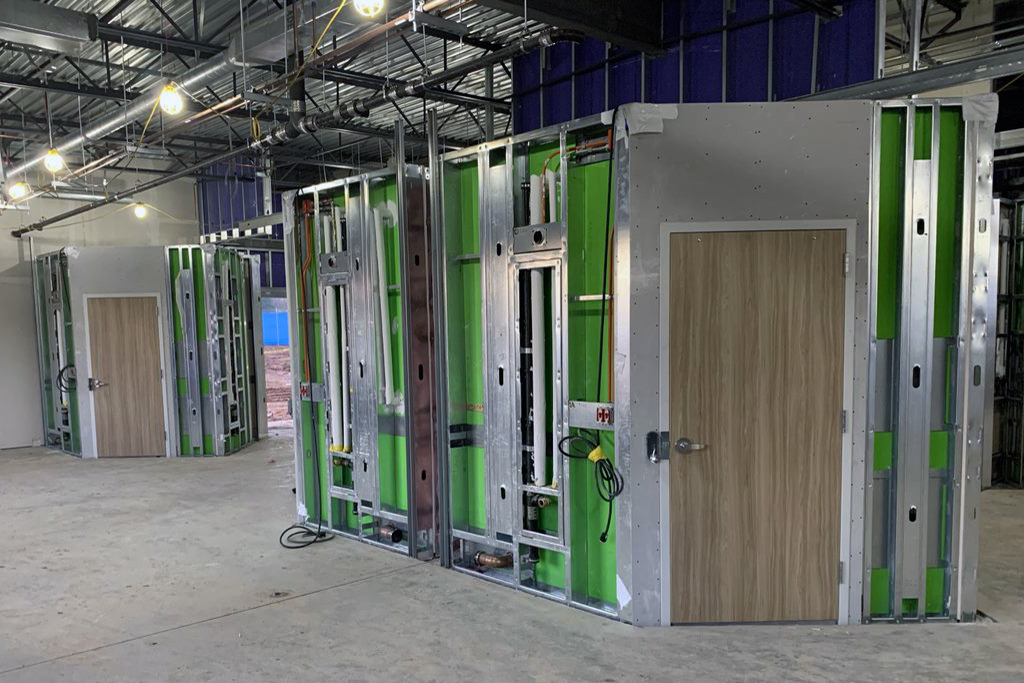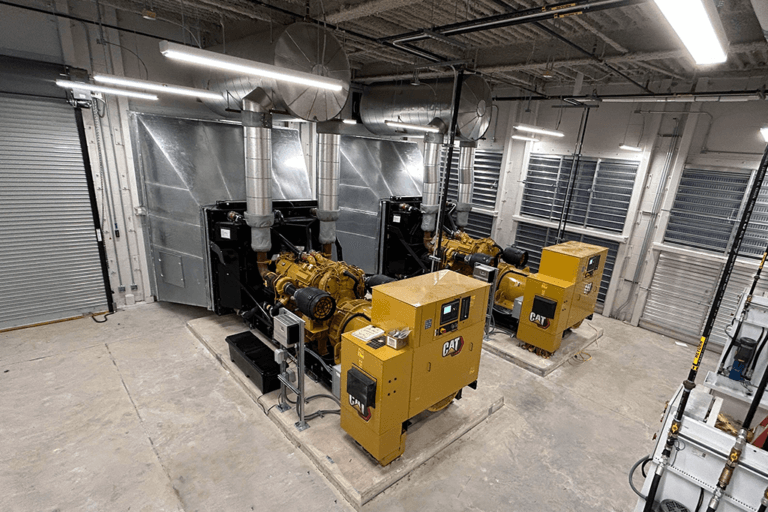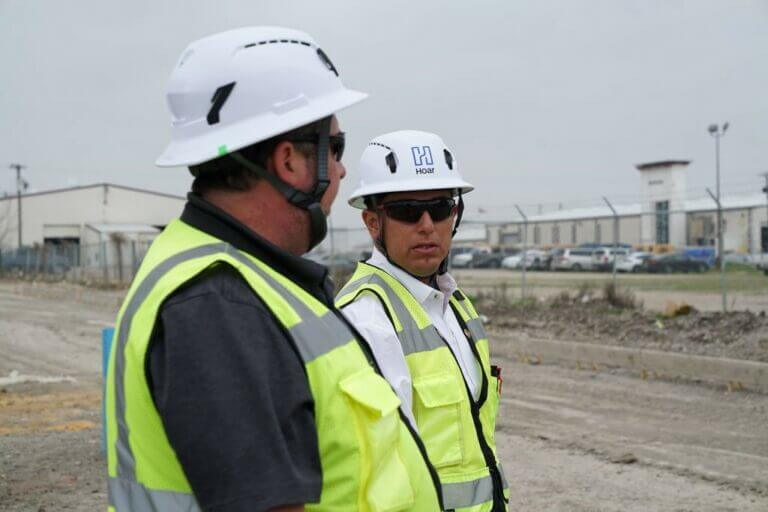
The city of Austin is booming. Tesla is currently building a new factory here. Apple is also expanding to Austin and has a new campus under construction. The Tesla project alone will take approximately 1,000 mechanical and plumbing trade workers to complete. Factor in the many other exciting projects either under construction or beginning in 2021 and it’s safe to say labor is a challenge for any Austin developer right now. Of course, the labor shortage is something that every client and builder in our industry has to plan for and overcome and it’s been that way for several years. So, how can you build a project within the schedule you need when skilled labor is hard to come by in your project’s location? One solution might be modular construction.
We’ve already discussed that modular construction isn’t right for every project, but it’s something I’d recommend considering if you have a tight schedule and repetitive or complicated building elements — like patient room bathrooms, MEP ceiling racks, or hotel rooms. Here’s 3 benefits of modular construction that can help overcome labor shortage and complete your building on, or even ahead of, schedule:
1. Secure Labor Outside Saturated Markets
We’re building a new children’s hospital in Austin and as I just mentioned, skilled labor is hard to come by. Our client needs their new hospital as soon as possible so they can begin serving patients in the community faster. Most, if not all, of Austin’s top mechanical, electric, plumbing, and all the other many skilled trades it takes to build a new hospital are already attached to other projects. So, our project team looked into modular construction opportunities for multiple aspects of the building — bathroom pods, MEP overhead racks, even the building’s exterior skin — so we could hire trade partners well outside city limits who had the capability to get the work done within our schedule. These components are being built offsite in warehouses in New Braunfels, Dallas, and Oklahoma City and will be delivered to the job site at just the right time.
2. Reduce the Uncertainty
When planning a project during a labor shortage, the traditional construction delivery method can put your project at risk for delays or price spikes. Trade partners get delayed on other projects and can’t start on time. Materials you budgeted for in January have shot up in cost by July when you’re ready to purchase. With modular construction, multiple phases of construction can begin immediately, reducing the risk for unpredictable variables to come into play. On the children’s hospital in Austin, we’re securing final approvals for our bathroom units, exterior walls, and overhead racks so we can begin construction offsite immediately. By the time our onsite project team completes the site work and concrete structure, we will be able to install these modular components in a matter of weeks, not months.
3. Increase Quality Assurance
The speed of modular construction gets all the glory, but the increased quality that the building method can deliver deserves a little hype. Hospital bathrooms are small and involve a lot of detail. Traditionally, multiple trades are trying to complete work in those small spaces on top of, or right after each other. With modular construction, we can build the bathroom pods in an assembly line in a controlled environment. There’s less rework, less environmental distractions, and improved working conditions for our trade partners. The exterior skin work we’re doing offsite will offer incredible quality assurance to our client. According to our estimated schedule, from the day our concrete is complete we will have the skin up and the building dried in 20 days later. That’s months eliminated from the schedule where the building would be vulnerable to weather. We’re able to mitigate the risk of water damage and greatly reduce the cost of rework.
Modular construction is a bit of buzz word in our industry right now, and for good reason. The method is capable of overcoming labor shortage challenges, increasing speed, and increasing quality on a multitude of project types. As our industry continues to place a premium on speed, I think we’ll see the market demand for modular construction increase with it.

